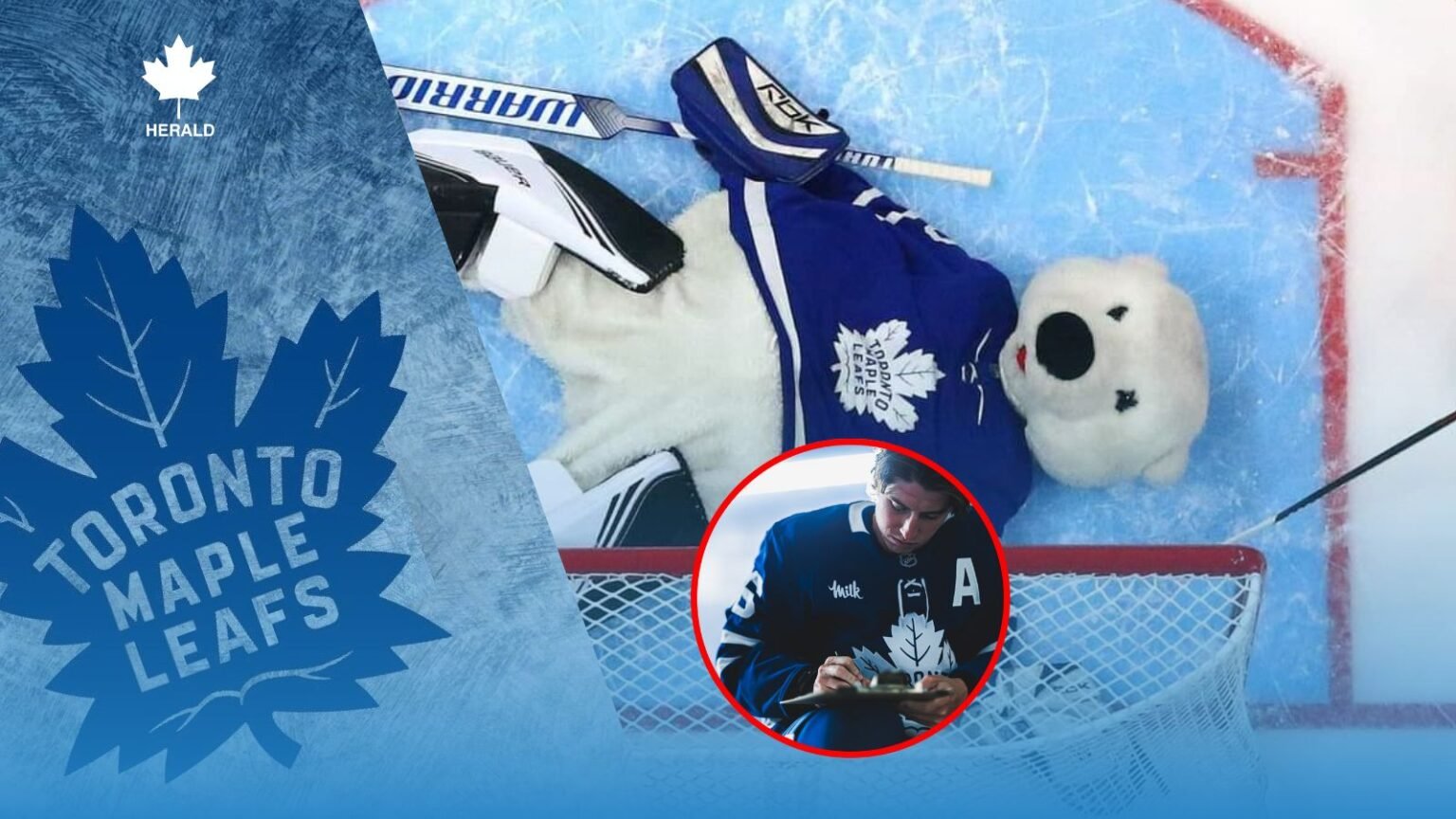Jake Oettinger’s new contract with the Dallas Stars might be bad news for the Toronto Maple Leafs. While it doesn’t seem directly related at first glance, it is the shadow of a growing trend in the NHL that could pose a problem for the Leafs’ goalie situation.
So, Oettinger just signed an eight-year deal with a cap hit of $8.25 million per year, a figure that’s now becoming the standard for top-tier goalies. In the past few months, Jeremy Swayman of the Boston Bruins and Linus Ullmark of the Ottawa Senators both signed contracts with similar cap hits. This trend sets the market price for elite goaltenders, and it suggests the Leafs won’t be able to get a high-quality goalie on the cheap.
Anthony Stolarz, the Leafs’ current starter, has been fantastic this season with a 1.79 goals-against average and a .937 save percentage. However, he’s 30 years old, and it’s uncertain how long he can keep up this level of performance. While Stolarz’s $2.5 million cap hit is a bargain for now, finding future goalies at that price is unlikely.
The Leafs also have Joseph Woll and Dennis Hildeby in their pipeline, but neither has proven themselves as a long-term solution just yet. Woll hasn’t played a game this season, and while Hildeby has shown promise, it’s too early to count on him being the answer.
If the Leafs want a top-level goalie who can carry them deep into the playoffs, they’ll need to clear cap space and be ready to spend big. Oettinger’s contract shows that finding a franchise goalie is expensive, and the Leafs might soon have to make some tough financial decisions to compete in that market.
Mitch Marner situation will only heat up if Treliving keeps delaying things
Marner is off to an explosive start in the 2024-25 season, and with each game, his value continues to rise. The Leafs made a critical mistake by not locking up their star forward over the summer, allowing him to edge closer to free agency—and making his future contract even more expensive.
Marner is currently leading the team with seven points and is dominating in nearly every aspect of the game. He logs the most ice time among Leafs forwards, is essential on the penalty kill, and consistently generates scoring chances. His 58% expected goals rating is one of the best on the team, and the Leafs outplay opponents when he’s on the ice, winning his minutes 5-2.
Despite some early trade rumors and online criticism, Marner has proven his immense value. If the Leafs want to remain competitive, they need to act fast. Marner is irreplaceable, and with every great performance, his asking price only increases. Toronto needs Mitch Marner more than he needs them—and it’s time they pay him what he deserves.
Third Bad News that is a growing danger going forward
The Toronto Maple Leafs have kicked off the 2024-25 NHL season with a decent showing in strength across offense, defense, and goaltending. However, despite their overall performance, there’s one glaring weakness that could become a major problem if not fixed soon: their power play.
Toronto's power play has steadily declined.
— Leandro McConnell (@FromTheBend) October 24, 2024
2021-22: Led the league with a 27.3% success rate.
2022-23: Slipped slightly to 26% but still 2nd overall.
Last season: Dropped to 24%, ranking 7th.
This season: Leafs are 3 for 23 (13%) on the power play, sitting 26th.#Leafs
Once among the league’s best, Toronto’s power play has steadily declined. In the 2021-22 season, they led the NHL with a 27.3% success rate, and though they dropped slightly to 26% in 2022-23, they still ranked second overall. Last season, they slipped further to seventh at 24%. This decline has continued into this season, with the Leafs struggling to convert, sitting at just 3 for 23 on the power play—placing them 26th in the league.
The team’s inability to capitalize with the man advantage has persisted despite changes, including the addition of new personnel like assistant coach Marc Savard, who was brought in to revamp the unit. So far, the tweaks, such as moving Oliver Ekman-Larsson to the top power play unit, haven’t made the impact fans were hoping for.
The problem isn’t just low conversion rates; it’s also predictability. The Leafs have been criticized for over-passing and making plays look pretty instead of sticking to the fundamentals—like getting shots to the net and setting screens in front. Opposing teams are finding it easy to block Toronto’s passing lanes, anticipating their moves before they happen.
If the Leafs want to remain competitive, they need to act quickly. Whether that means shaking up the power play units or developing a new strategy, something needs to change. If they continue to lose the special teams battle, it could come back to haunt them, especially during the playoffs—where, as last season painfully showed, the consequences can be devastating.


